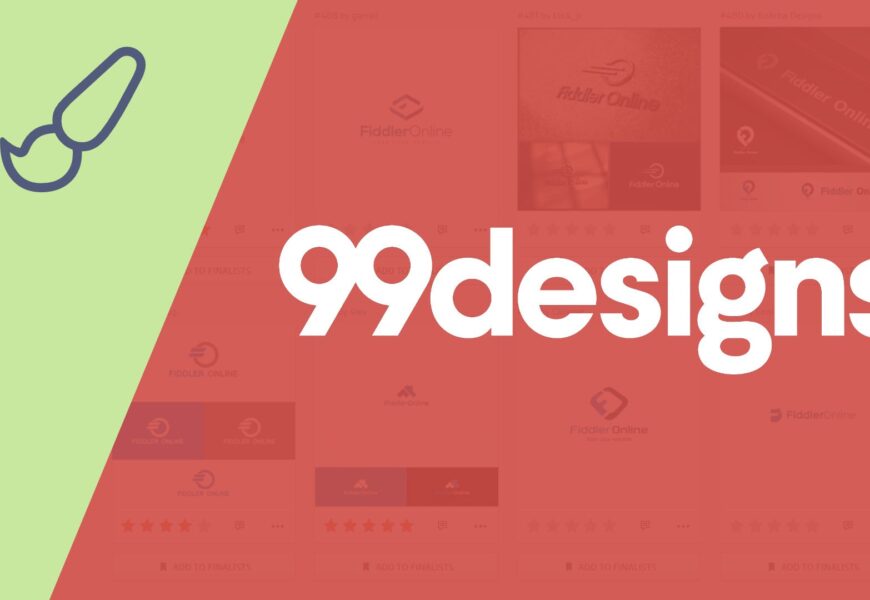In the ever-evolving landscape of freelancing platforms, 99designs stands out as a unique and innovative platform specifically tailored for designers. Founded in 2008, 99designs has grown into one of the largest and most reputable platforms for connecting designers with clients seeking custom design solutions. With its user-friendly interface, competitive design contests, and global community of creatives, 99designs offers a dynamic marketplace where designers can showcase their talents, collaborate with clients, and bring creative visions to life. In this review, we’ll explore the key features, benefits, and considerations of the 99designs platform, shedding light on its strengths and potential drawbacks for designers and clients alike.
Overview of 99designs
At its core, 99designs operates on a unique model centered around design contests. Clients submit design briefs outlining their requirements, preferences, and budget for a specific project, such as logo design, website design, or branding collateral. Designers then have the opportunity to submit their design concepts to compete for the client’s approval. Throughout the contest, clients provide feedback and request revisions, allowing designers to refine their submissions based on client preferences. At the end of the contest period, the client selects the winning design and awards the prize money to the winning designer.
In addition to design contests, 99designs also offers one-to-one projects, where clients can collaborate directly with a specific designer on a custom project outside of the contest format. This flexibility allows clients to choose the workflow that best suits their needs and preferences, whether they prefer the competitive nature of design contests or the personalized approach of one-to-one projects.
Key Features and Benefits
- Global Community of Designers: One of the standout features of 99designs is its diverse and talented community of designers from around the world. With thousands of designers specializing in various disciplines, clients have access to a wealth of creative talent and expertise to choose from.
- Design Contest Model: The design contest model employed by 99designs provides clients with a wide range of design concepts and options to choose from. By leveraging the collective creativity of multiple designers, clients can explore different styles, concepts, and approaches before making a final decision.
- Client Feedback and Collaboration: Throughout the design contest process, clients have the opportunity to provide feedback, request revisions, and collaborate with designers to refine their designs. This interactive process ensures that clients are actively involved in the creative direction of their projects and can communicate their vision effectively to designers.
- Transparent Pricing: 99designs offers transparent pricing for clients, with fixed pricing tiers based on the scope and complexity of the project. Clients know upfront how much they will pay for design services, allowing for easy budgeting and cost management.
- Quality Assurance: To maintain quality and integrity on the platform, 99designs employs a team of design experts who review submissions and ensure that designs meet the platform’s quality standards. This quality assurance process helps clients identify high-quality designs and provides assurance that they are getting value for their investment.
- Secure Payment Processing: 99designs provides secure payment processing for both clients and designers, with funds held in escrow until the client selects a winning design. This protects both parties from payment disputes and ensures that designers are compensated fairly for their work.
Considerations and Drawbacks
While 99designs offers many benefits for clients and designers, there are some considerations and potential drawbacks to be aware of:
- Competitive Nature: The competitive nature of design contests can be both a blessing and a curse. While it provides clients with a wide range of design options to choose from, it also means that designers must invest time and effort into creating designs without a guarantee of payment. Some designers may find this aspect of the platform challenging or discouraging.
- Limited Control for Designers: Designers participating in design contests have limited control over the creative direction of their projects. They must adhere to the client’s brief and preferences, which may not always align with their own creative vision. This lack of autonomy can be a drawback for designers who prefer more control over their projects.
- Prize Money Distribution: In design contests, only the winning designer receives the prize money, while other designers may not receive compensation for their efforts. This can be perceived as unfair by designers who invest time and energy into creating designs but do not win the contest.
- Quality Variability: The quality of designs submitted in design contests can vary widely, depending on the skill level and experience of the participating designers. Clients may need to sift through numerous submissions to find designs that meet their standards, which can be time-consuming and overwhelming.
Conclusion
In conclusion, 99designs is a reputable and innovative platform that offers a dynamic marketplace for clients and designers to collaborate on custom design projects. With its design contest model, global community of designers, and transparent pricing, 99designs provides clients with access to a wealth of creative talent and options to choose from. While the competitive nature of design contests and limited control for designers may be drawbacks for some, the platform’s quality assurance measures and secure payment processing help ensure a positive experience for both clients and designers. Whether you’re a client seeking design solutions or a designer looking to showcase your talents, 99designs offers a valuable platform to connect, collaborate, and bring creative visions to life.













